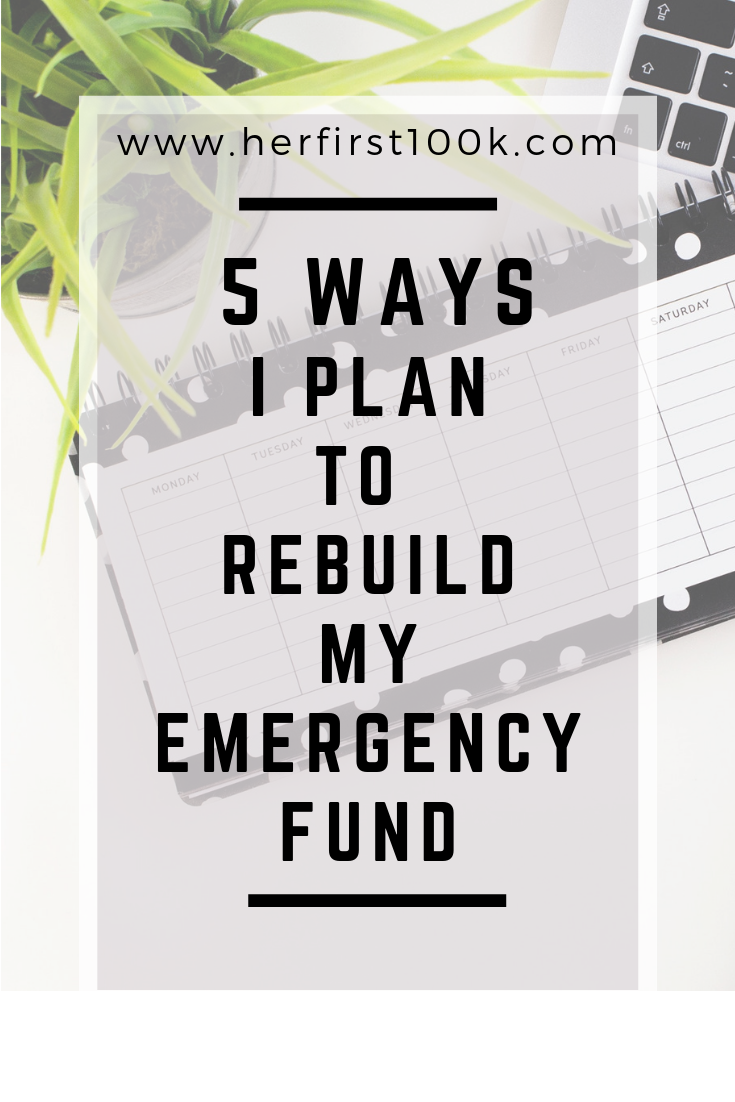The following article may contain affiliate links or sponsored content. This doesn’t cost you anything, and shopping or using our affiliate partners is a way to support our mission. I will never work with a brand or showcase a product that I don’t personally use or believe in.
Confession: I’ve used my emergency fund. Yes, for an emergency!
Years ago, when I quit my unhealthy job, I knew I had enough emergency savings to cover my expenses for at least 6 months.
I used it, and that’s totally fine. This is why we save an emergency fund, people!
Your emergency fund (aka 3-6 months of living expenses saved in a HYSA) should generally go untouched. But you should also feel entitled to use your money for what you need.
But once you’re starting to see the light at the end of the tunnel, it’s time to rebuild that emergency fund. Here’s what I did to make it happen.
1. Limit eating out
This was my biggest key to contributing more to savings. I eat out a lot, and although that’s in line with my value categories (I had some incredible food with some incredible people), it takes a pretty big toll on my budget.
Could I afford all of these dinners out and still save some money? Yes. Is it seriously limiting me from saving more? Yeah.
When I was in recoup mode, I limited my eating out to 3 or so times a month to make them more significant (and to avoid those regular $25 charges a few times a week).
2. Do some short-term freelance projects on the side
While job hunting, I took some larger freelance projects that I, unfortunately, had to transition away from (a busy new job will do that to you!). Instead of larger, more intense projects, I took on smaller, short-term projects that require just a few hours of time a week.
3. Live on a percentage of my income
As I got back into my work routine, I figured out just how much money I needed for my regular expenses (rent, utilities, car, cell phone, public transit, etc.) and how much I have leftover for savings and fun stuff.
Instead of using up my whole budget, I decided to live off of a smaller percentage, even if I “could” spend more given my income. This is more of a mental budgeting shift. Though I’m never going to shame you for spending your money (that’s what it’s for!), I will encourage you to spend intentionally. And when you’re rebuilding your emergency fund, you might want to be temporarily more frugal.
4. Set financial boundaries
It can be hard to be transparent about money in a culture that talking about it is taboo, but it’s so important to be open about finances, especially when you’re working through some challenges.
Setting financial boundaries can be as simple as saying that you’re being more intentional with your spending for a month or two.
Of course, I want you to always feel like you can set the boundaries you need, but sometimes it can be tough to verbalize. One strategy is to avoid the conversation by making the first move. Instead of having to tell your friend you don’t want to do that dinner out, invite her to do a walk first. This won’t always be an option, but something to consider!
5. Use cash-back credit cards
When I quit my job, I started using my cashback cards as my everyday choice, and I continued that while I built my savings back up. While I often let my rewards pile up, I immediately put those cashback dollars into my emergency fund.
Not sure which card is right for you? Feel like you could get a card that offers more? You can see all of my credit card recommendations here.
RESOURCES
I get asked all the time: what are your favorite money management tools?
Capitalize: Did you recently switch jobs or launch your own business? Instead of losing money, roll over your old 401(k) into a brand new or existing IRA with Capitalize. They handle all the paperwork for you and for FREE, including calling the 401(k) provider on your behalf, completing paperwork, and sending faxes.
Credit Card Picks: My go-to travel and dining rewards card that I recommend.
Treasury: We’re building a one-of-a-kind, non-judgemental community where you can learn exactly how to invest, build wealth, and receive exclusive access to Her First $100k.
Personal Capital: The tool I check daily, Personal Capital is the best tool for tracking your net worth and your progress towards goals like saving, debt payoff, and (yes!) $100K.
The $100K Club Facebook Group: Need some honest money conversations in your life? Join my free community to get your burning questions answered.



